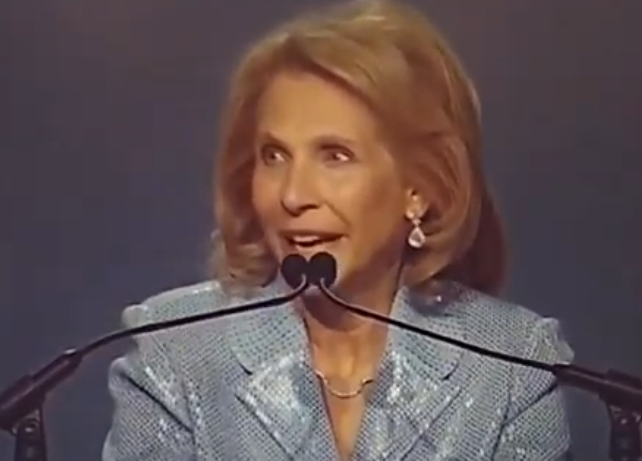Shari Redstone: Media Must Return to Facts Over Opinions in Wake of 60 Minutes Shakeup
Paramount Global’s non-executive chairwoman Shari Redstone is drawing a line in the sand when it comes to the media’s role in American society. In a candid interview following the resignation of longtime 60 Minutes executive producer Bill Owens, Redstone made a passionate call for a return to journalistic integrity—anchored not in opinion, but in facts.
“There is nothing controversial about telling the truth,” Redstone told TheWrap. “There’s nothing controversial about getting the real story out there.”
That simple statement cuts to the heart of what many Americans believe has gone wrong with modern media. For Redstone, the mission of journalism is clear: provide facts, not partisan spin, and let the public decide how to interpret them. It’s a viewpoint that echoes the frustration felt by millions of viewers who no longer trust legacy outlets to play it straight.
Free Speech, Not Free Spin
Redstone didn’t hold back when discussing the misuse of journalistic freedom. While she acknowledged the fundamental importance of free speech, she made it clear that media platforms bear a serious responsibility—not just to speak, but to inform accurately.
“Freedom of the press isn’t just about airing one side’s narrative,” she said. “It’s about telling both sides, giving people the facts, and stepping back to let the public make up their own minds.”
It’s a philosophy rooted in a media tradition many feel has been lost in recent years—a time when reporters delivered the news without attempting to shape it. Redstone harkened back to the days of Walter Cronkite, a figure widely respected across political lines.
“People believed in the truth back then,” she reflected. “They trusted the news to help them make informed, independent judgments. That’s the foundation of a free society.”
Turmoil at 60 Minutes
Redstone’s remarks came just hours after 60 Minutes producer Bill Owens announced his resignation. Owens, who had faced growing criticism over editorial decisions, cited interference from upper management as the final straw.
“For months, I’ve been unable to operate the program independently,” Owens said in a statement. “I’ve always done what I believed was best for 60 Minutes and for our viewers—but I can no longer do that, so I’m stepping aside.”
His departure comes amid a turbulent chapter for CBS. The network is currently under legal fire from former President Donald Trump, who has accused 60 Minutes of political bias and deceptive editing during an interview with then-candidate Kamala Harris.
The lawsuit, which originally sought $10 billion in damages and has since been amended to $20 billion, alleges CBS acted as an arm of the Harris campaign. A federal judge recently denied the network’s motion to dismiss the case—keeping the pressure squarely on the embattled broadcaster.
Is Redstone Cleaning House?
While conflicting reports swirl around Redstone’s internal stance on the matter, some insiders suggest she’s been increasingly concerned about the program’s partisan leanings. Sources say she has scrutinized the 60 Minutes team in recent months, possibly contributing to Owens’ exit. Others, however, claim she has stayed out of day-to-day programming decisions.
Still, Redstone’s comments leave little doubt about her broader vision for the company’s media holdings: a commitment to restoring balance, objectivity, and trust in the information being delivered.
A Media Moment of Reckoning
Bill Owens’ exit is only the latest in a string of high-profile resignations, controversies, and legal entanglements plaguing legacy media outlets. But Redstone’s call for a return to traditional journalism—where facts come first—may mark a pivotal shift.
In an era where Americans are increasingly skeptical of the media’s motives, her message is both timely and needed.
“We have a responsibility,” Redstone affirmed. “Not just as a company, but as stewards of a powerful platform that can inform, mislead—or, when done right, empower.”
Whether her words will spark real change at CBS and beyond remains to be seen. But in a media landscape riddled with division and distrust, her reminder of journalism’s true purpose is a welcome and necessary one.

